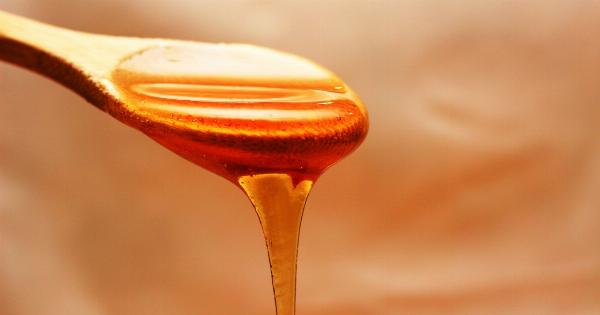When it comes to dieting, there are numerous debates about what foods are permissible and what should be avoided. One such food that is often questioned is honey.
While honey is naturally sweet and delicious, it has a higher calorie content compared to other natural sweeteners like stevia or maple syrup. In this article, we will explore whether honey consumption is permissible when dieting and the potential benefits and drawbacks associated with it.
What is honey?
Honey is a sweet, viscous fluid produced by bees using nectar from flowers. It has been consumed by humans for thousands of years and has a wide range of culinary and medicinal uses.
Honey is composed mainly of fructose, glucose, and water, along with trace amounts of minerals and antioxidants. It is known for its distinct taste and various health benefits.
The nutritional profile of honey
Honey is often touted as a healthier alternative to refined sugar due to its natural composition. However, it is important to note that honey is still a concentrated source of calories and carbohydrates.
Here is a breakdown of the nutritional profile of one tablespoon (21 grams) of honey:.
- Calories: 64
- Carbohydrates: 17 grams
- Fat: 0 grams
- Protein: 0 grams
- Fiber: 0 grams
- Sugar: 17 grams
The glycemic index of honey
The glycemic index (GI) is a measure of how quickly a food raises blood sugar levels.
Foods with a high GI are rapidly digested and cause a sharp increase in blood sugar levels, while foods with a low GI are digested more slowly, leading to a gradual rise in blood sugar levels. Honey has a moderate to high GI, depending on the floral source and processing methods. Consuming foods with a high GI can cause blood sugar spikes, which may not be ideal for individuals trying to lose weight or manage their blood sugar levels.
Potential benefits of honey when dieting
Despite having a higher calorie content and a moderate to high GI, honey can still offer some potential benefits when consumed in moderation while dieting:.
- Natural sweetener: Honey can be used as a natural alternative to refined sugar in various recipes, helping to reduce the intake of added sugars.
- Antioxidant properties: Honey contains antioxidants that can help protect the body against free radicals and oxidative stress, supporting overall health.
- Microbial benefits: Certain types of honey, such as Manuka honey, have antimicrobial properties and may aid in fighting certain infections or promoting wound healing.
- Cough relief: Honey has been used as a natural remedy for coughs and sore throats. It can coat the throat and provide temporary relief from irritation.
Drawbacks of honey when dieting
While honey does offer some potential benefits, there are also some drawbacks to consider when consuming it while dieting:.
- Calorie content: Honey is higher in calories compared to other natural sweeteners like stevia or erythritol. Excessive calorie intake can hinder weight loss efforts.
- GI impact: Honey can cause a relatively rapid rise in blood sugar levels due to its moderate to high GI. This can be problematic for individuals with diabetes or those aiming to stabilize their blood sugar levels.
- Lack of nutrient density: While honey contains small amounts of minerals and antioxidants, it does not provide a significant source of essential nutrients when compared to other whole foods.
How to consume honey when dieting?
If you decide to incorporate honey into your diet while trying to lose weight, it is essential to do so in moderation and consider the following points:.
- Portion control: Use honey sparingly and measure your portions to avoid excessive calorie intake.
- Balance with other nutrients: Pair honey with protein, fiber, or healthy fats to slow down the release of sugar into the bloodstream and minimize blood sugar spikes.
- Consider the timing: Consume honey around workouts when your body can utilize the carbohydrates for energy rather than store them as fat.
Conclusion
Honey consumption can be permissible when dieting, but it is crucial to consider its calorie content, glycemic index, and individual health conditions.
While honey offers potential benefits such as being a natural sweetener and having antioxidant properties, it should be consumed in moderation and balanced with a healthy diet. It is advisable to consult with a healthcare professional or a registered dietitian to determine the best approach for your specific dietary needs and weight management goals.






























